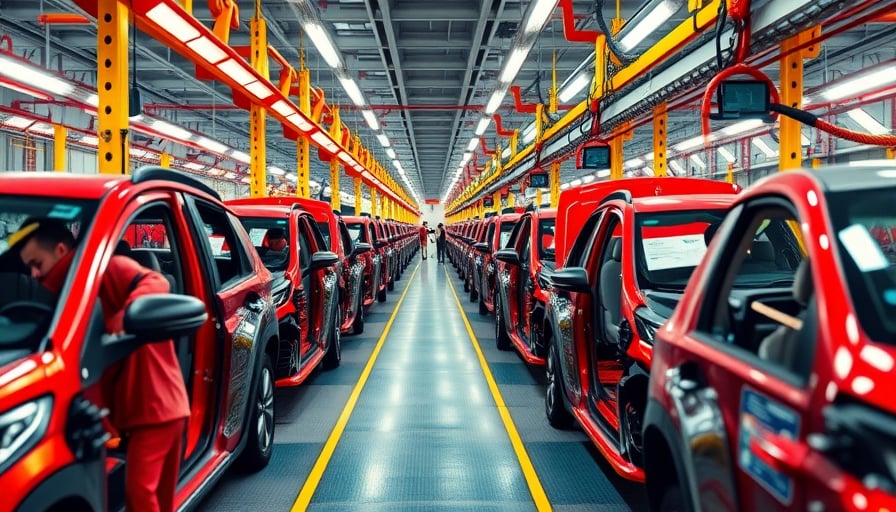Hangzhou Radical Energy Saving Technology Co., Ltd. (LDK) – A Cautionary Tale of Over‑Valuation and Uncertain Growth
Hangzhou Radical Energy Saving Technology, ticker 300652, trades on the Shenzhen Stock Exchange amid a market environment that is increasingly hostile to high‑growth, high‑valuation consumer‑discretionary stocks. With a 52‑week range that has plunged from 73.88 CNY to 18.66 CNY, the company’s share price is a textbook case of volatility born from an unsustainable earnings multiple of 55.98.
1. Business Model and Market Position
LDK’s core business is the manufacturing and sale of wheel bearings, wheel bearing units, tapered bearings, and related automotive components. Its clients are automotive OEMs, a sector that is highly cyclical and fiercely price‑sensitive. The company’s product portfolio is narrow; it has not diversified into higher‑margin components or value‑added services that could cushion it against downturns in the global auto market.
The company’s market cap of 7.83 billion CNY is dwarfed by the likes of larger Chinese bearing groups such as Yuchai or Yantai. In a market where economies of scale and vertical integration are decisive, LDK’s relatively modest size is a handicap.
2. Financial Health and Earnings Pressure
LDK’s current share price of 58.88 CNY is a stark reminder that the company is trading well above its intrinsic value. The price‑to‑earnings ratio of 55.98 implies that investors expect earnings to grow at an extraordinary pace—an expectation that is unrealistic for a company that relies on commodity‑price‑sensitive inputs and faces intense competition from both domestic and overseas suppliers.
There is no recent earnings announcement to support the lofty valuation. The absence of a quarterly report or a guidance update suggests that management may be struggling to generate fresh capital and that the board is under pressure to deliver results that justify the current market sentiment.
3. Strategic Risks
- Supply‑Chain Disruption: The global automotive industry has already experienced supply‑chain shocks (e.g., semiconductor shortages). A further disruption would hit LDK’s revenue stream directly, as it has no buffer stock or alternative markets.
- Price Wars: The bearing industry is highly competitive, and price wars erode margins. LDK’s thin operating leverage means that even a modest decline in selling price could lead to a disproportionate drop in profitability.
- Technological Obsolescence: The automotive sector is shifting toward lightweight, high‑performance materials and electric‑vehicle drivetrains that demand more sophisticated components. LDK’s product line is largely conventional, and the company has yet to invest in R&D that aligns with future market needs.
4. The Bottom Line
LDK’s story is not one of growth but of survival. The company’s over‑valued share price, narrow product focus, and exposure to cyclical demand make it a speculative bet for investors. Without a clear strategy to broaden its product base, improve margins, or secure a stable customer pipeline, LDK’s stock will likely continue to drift toward its 52‑week low.
Investors should treat LDK as a high‑risk, low‑reward proposition. The company’s current valuation does not reflect the fundamental realities of a commodity‑heavy, price‑sensitive business operating in a highly competitive environment.
